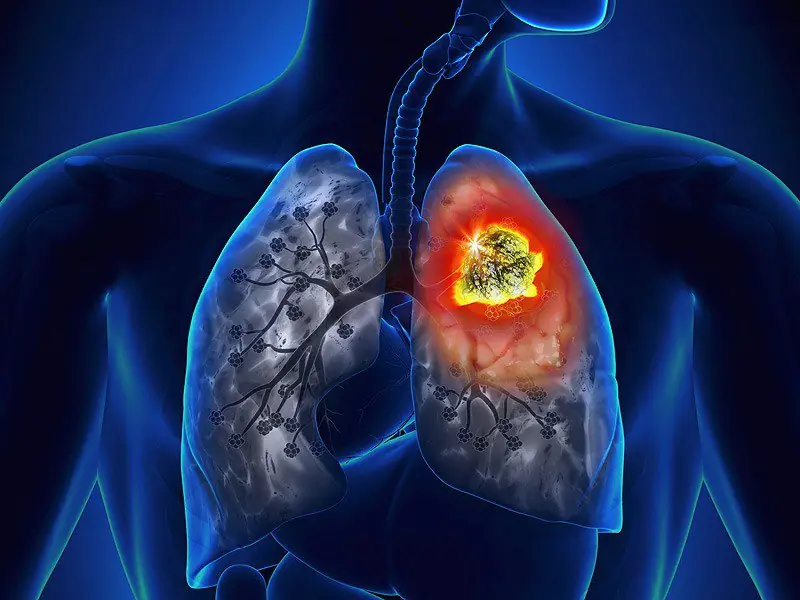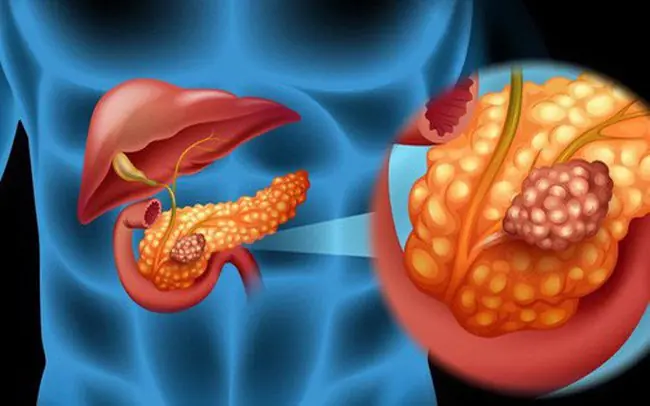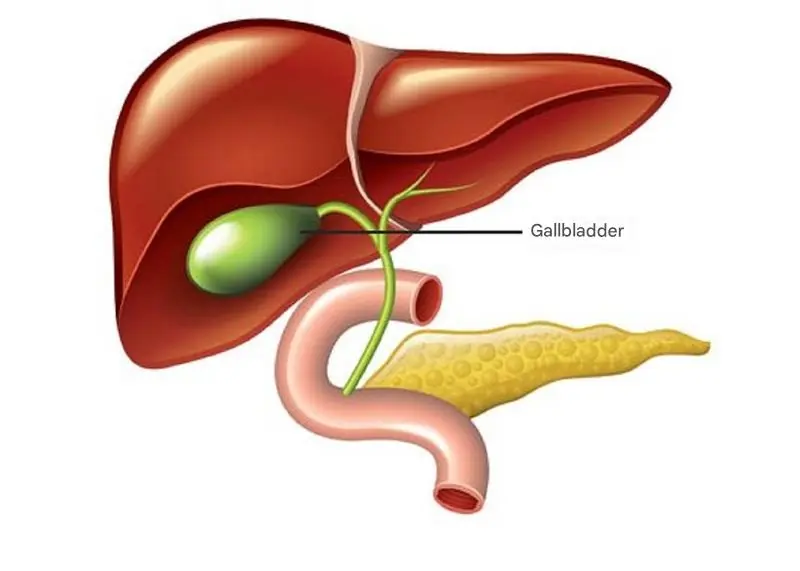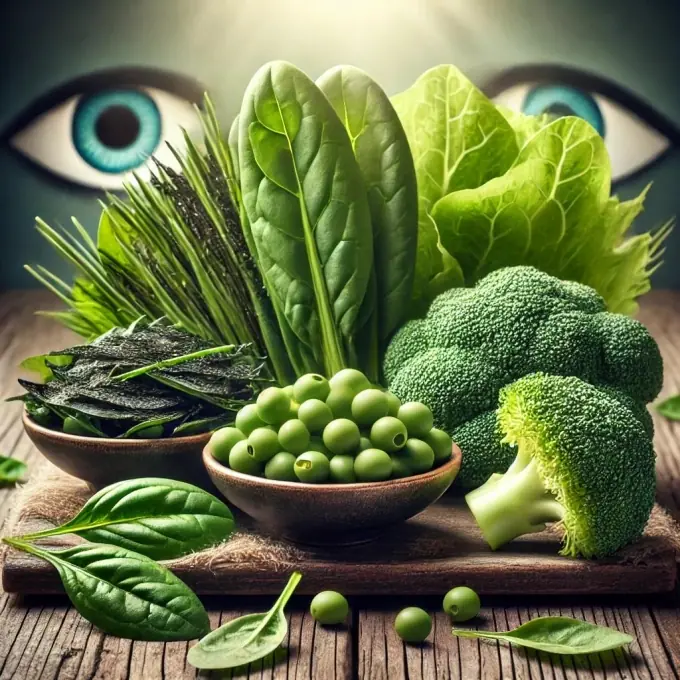
A 59-Year-Old Man Ate Raw Garlic Daily for Its Antibacterial and Anti-Tumor Properties—What Happened to His Health After Six Months?

Garlic is a common kitchen ingredient that also boasts medicinal properties. Known for its strong, pungent flavor, garlic is packed with powerful nutrients and is believed to offer numerous health benefits, such as lowering blood pressure, reducing cholesterol levels, and potentially preventing cancer.
Research suggests that the active compounds in garlic may inhibit the growth and spread of cancer cells, providing some anti-cancer benefits. Additionally, garlic has natural antibacterial properties, making it useful for treating infections, inflammation, and even oral and skin health.
But does consuming raw garlic daily really help with disease prevention? Let’s take a look at one man’s experience.
A 59-Year-Old Man Ate Raw Garlic Daily for Its Antibacterial and Anti-Tumor Effects—What Happened After Six Months?
Mr. Chen, a 59-year-old man, tragically lost his wife to cancer. Over time, he also saw many of his close friends and family members pass away from the same disease. Fearful of developing cancer himself, he came across a popular belief that eating raw garlic daily could kill bacteria and prevent cancer.
Determined to protect his health, he strictly followed this practice for three months. However, he soon began experiencing severe abdominal pain and was eventually diagnosed with gastritis (stomach inflammation) after visiting the hospital.
His doctor explained that while garlic does have immune-boosting and potential anti-cancer properties, most research is based on garlic extracts, not on consuming raw garlic directly.
Moreover, raw garlic is highly irritating to the digestive system. Excessive consumption can damage the stomach lining, leading to an increased risk of gastrointestinal issues such as gastritis and ulcers.
Health Benefits of Eating Garlic in Moderation
1. Helps Regulate Insulin Levels
An imbalanced diet can lead to micronutrient deficiencies, particularly selenium, which is essential for insulin production and blood sugar regulation.
Consuming moderate amounts of garlic may help replenish selenium levels, promoting insulin secretion and stabilizing blood sugar levels.
2. Lowers Cholesterol
Garlic acts as a natural cleanser for blood vessels. Certain compounds in garlic help reduce cholesterol levels and prevent plaque buildup in arteries, lowering the risk of blood clots and cardiovascular disease.
For middle-aged and elderly individuals with heart disease or high cholesterol, including moderate amounts of garlic in their diet may be beneficial.
3. Enhances Brain Function
Garlic contains high levels of vitamin B1, which plays a key role in converting glucose into energy for the brain.
Consuming garlic regularly may support cognitive function, boost memory, and promote mental clarity.
4. Anti-Aging Properties
Garlic is rich in zinc and selenium, both of which help neutralize free radicals in the body, slowing down aging and promoting tissue repair.
Additionally, garlic has antibacterial properties that aid in gut health and support digestive recovery.
5. Prevents Hair Loss
The volatile oils in garlic improve blood circulation to hair follicles, providing essential nutrients to the scalp and promoting hair growth.
Furthermore, garlic is packed with vitamin E and minerals, which nourish the scalp, reduce dandruff, and help prevent hair thinning.
6. Helps Reduce Allergic Reactions
People with sensitive immune systems often experience seasonal allergies that cause discomfort. Consuming garlic regularly may help reduce allergic reactions and improve immune tolerance.
Who Should Avoid Eating Garlic?
While garlic has many health benefits, certain individuals should limit or avoid its consumption.
1. People with Garlic Allergies
Some individuals are allergic to garlic, and consuming it can trigger skin rashes, hives, and other allergic reactions. Those with known garlic sensitivities should completely avoid it.
2. Individuals with Eye Conditions
There is a common saying: "Garlic has a hundred benefits but one harm—it's bad for the eyes."
Excessive garlic consumption may exacerbate eye problems, especially in those with conjunctivitis, glaucoma, or other eye disorders. People with pre-existing eye conditions should consume garlic in moderation.
3. Those Experiencing Non-Bacterial Diarrhea
People suffering from non-bacterial diarrhea (such as IBS or inflammatory bowel conditions) should avoid garlic, as it can irritate the intestines, worsen inflammation, and aggravate symptoms.
5 Garlic Consumption Rules to Follow
1. Avoid Eating Garlic on an Empty Stomach
Garlic is highly acidic and irritating, which can cause digestive discomfort if eaten on an empty stomach.
Individuals with weak digestion, stomach ulcers, or acid reflux should always eat something first before consuming garlic.
2. Limit Garlic Intake
Eating too much garlic can hinder vitamin B absorption and may also irritate the eyes, leading to conditions like eyelid inflammation and conjunctivitis.
For best results, consume garlic in moderation—no more than 2-3 cloves per serving, once a day or every other day.
3. Consume Garlic the Right Way
Garlic’s antibacterial properties come from a compound called allicin, which is most potent when garlic is raw and crushed.
For maximum benefits, it’s best to eat garlic raw rather than cooked or pickled. However, fermented and pickled garlic products often contain high salt levels, which can be harmful if consumed in excess.
4. Avoid Eating Garlic with Mangoes
Garlic and mangoes should not be eaten together. Mangoes contain fruit acids that can react with garlic, producing irritating substances that may cause allergic reactions or skin irritation.
To avoid digestive and skin issues, it's best to consume these foods separately.
5. Avoid Long-Term Daily Garlic Consumption
Eating garlic continuously over a long period may harden the intestines, leading to constipation and gut microbiome imbalances. This disruption can increase the risk of digestive and skin disorders.
Final Thoughts
Garlic is a highly nutritious and beneficial food, but excessive consumption can lead to adverse effects, particularly for individuals with sensitive digestion or pre-existing conditions.
If you enjoy garlic, it’s essential to consume it in moderation, consider your individual health needs, and be mindful of how you prepare it to maximize its benefits without harming your body.
By eating garlic wisely and in balance, you can support your health without unnecessary risks. 🧄💪
News in the same category


A 59-Year-Old Man Ate Raw Garlic Daily for Its Antibacterial and Anti-Tumor Properties—What Happened to His Health After Six Months?

If Budget Allows, Include These Nutrient-Rich Foods in Your Diet to Boost Immunity and Maintain Health!

Is Oral Cancer a Result of Ignoring Symptoms? 6 Warning Signs You Shouldn’t Overlook

Is Lung Cancer Contagious? Can It Be Inherited? A Doctor Reveals the Truth

Doctor’s Warning: People Prone to Pancreatic Cancer Tend to Share These Common Traits – Here’s What You Need to Know

What Kind of Hypertension Is the Most Dangerous? Doctor’s Reminder: Pay Attention to These Three Types – Which One Do You Belong To?

What Happens to the Body After Gallbladder Removal? 3 Diseases That May Follow – Avoid Surgery If Possible

The Habit of Eating Sweet Potatoes for Breakfast: 3 Amazing Benefits for a Healthier You!

Can Ignoring Abnormal Symptoms Lead to Oral Cancer? 6 Warning Signs That Demand Early Check-Ups

Study Reveals Rising Cancer Rates Among Gen X and Millennials Compared to Older Generations

When The Body Is Hungry Or Fasting It Starts A Process Called Autophagy Which Begins To Regenerate The Immune System

Man's Carnivore Diet Causes Strange Yellow Deposits on Skin Health

12 WARNING SIGNS OF A HEART ATTACK YOU SHOULD NOT IGNORE

Pope Francis in Critical Condition After Prolonged Respiratory Crisis: Sepsis Risk Threatens His Life

Three Types of Body Hair That Indicate Good Health in Women – The Unexpected Truth

Mulberries and Raspberries: Everyday Superfoods for Liver Health, Eye Care, and Kidney Support

Should People with Thyroid Problems Avoid Soy? Warning: These 2 Supplements Could Accelerate Thyroid Cancer

Call to Stop Eating This – Worse for Your Bones Than MSG! Warn Your Family to Remove It from the Table
News Post

Recommended this smoothie, and one glass a day was sufficient to naturally resolve these problems.

The Real Culprit Behind High Blood Pressure Isn’t Salt – It’s This! Stop Overeating It Before It’s Too Late

If Budget Allows, Include These Nutrient-Rich Foods in Your Diet to Boost Immunity and Maintain Health!

Doctor’s Warning: Avoid Eating Celery with These Foods – It May Harm Your Health, and Many People Don’t Know It

Is Oral Cancer a Result of Ignoring Symptoms? 6 Warning Signs You Shouldn’t Overlook

Turn Overripe Tomatoes into Flavorful Tomato Powder Instead of Waste

Dates & Papaya: A Powerful Duo for Your Health

Avocado Seeds: 7 Powerful Reasons to Stop Throwing Them Away

Is Lung Cancer Contagious? Can It Be Inherited? A Doctor Reveals the Truth

Say Goodbye to Flies and Cockroaches in Just One Hour with This Simple Trick!

Garlic, Honey, and Cloves – A Powerful Natural Remedy for Better Health

5 Essential Leaves to Naturally Enhance Eye Health

Doctor’s Warning: People Prone to Pancreatic Cancer Tend to Share These Common Traits – Here’s What You Need to Know

The Drink That Will Empty Hospitals in 2025 – Cures Diabetes, High Blood Pressure, and Cancer Without Medication

Blueberry Banana Smoothie – A Creamy & Nutritious Delight!

Oatmeal Blueberry Smoothie – A Creamy, Nutritious Breakfast in a Glass!

Cattails: Nature’s Hidden Treasure for Nutrition and Survival

Carrot Pineapple Smoothie – A Refreshing & Nutrient-Packed Drink!
